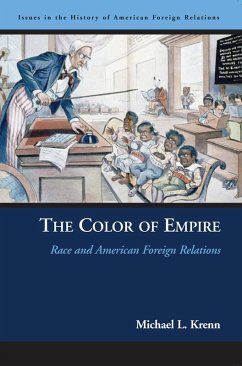At first glance, it may be difficult to accept that race and racism play a major role, whether conscious or subconscious, in policymaking. But leaders are products of their upbringing and era, and even some of America's best-educated presidents and secretaries of state have been slave owners, segregationists, or bigots. Some belong to America's distant past, but it was not so long ago that the civil rights movement began to correct America's troubled race relations. While race has rarely served as the primary motivating factor in America's foreign policies, Michael Krenn shows that it has functioned as both a powerful justification for U.S. actions abroad and a significant influence on their shape, direction, and intensity. Portraying nonwhite races as inferior allowed U.S. policymakers to rationalize territorial expansion at the expense of Native Americans and Mexico, to demonize the enemy in wars fought against Filipino insurgents and Japanese soldiers, and to justify intervention in developing nations. Racism made America's leaders soft on European colonialism, and U.S. racial segregation laws were an obstacle to winning hearts and minds in the developing world during the Cold War. Race plays a more subtle role in U.S. foreign relations today, but speeches about turning the war on terror into a crusade, the abuse of detainees in military prisons, and apathy toward genocide in Darfur can be explained, in part, by prejudice. The Color of Empire challenges readers to recognize that American perceptions and prejudices about race have influenced the conduct of U.S. foreign relations from the colonial era to the present. This concise survey is an excellent introduction to the topic for both students and general readers.
Dieser Download kann aus rechtlichen Gründen nur mit Rechnungsadresse in A, B, BG, CY, CZ, D, DK, EW, E, FIN, F, GR, HR, H, IRL, I, LT, L, LR, M, NL, PL, P, R, S, SLO, SK ausgeliefert werden.


